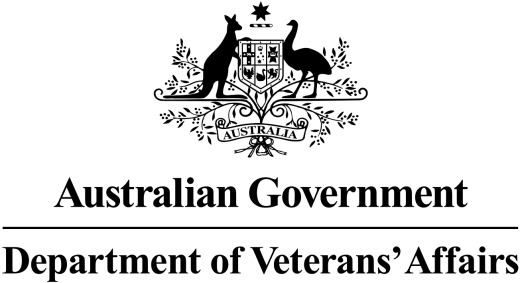75TH ANNIVERSARY OF AUSTRALIAN SERVICE IN THE KOREAN WAR
ACCESSING HOST BROADCASTS & STILLS IMAGERY
18 June 2025
HOST BROADCAST
On Wednesday 25th June 2025 at 10:30am the Australian Broadcasting Corporation (ABC) in association with the Australian Government Department of Veterans’ Affairs (DVA) is providing a host broadcast feed of the National Commemorative Service for the 75th Anniversary of Australian Service in the Korean War.
The Service will be held at The Korean War Memorial ANZAC Parade Canberra.
DETAILS:
The ABC will provide a television feed available in HD on ABN TX1 via the Kent Street (Sydney) node of the Telstra Dimetis (DVN2) network. This feed will not be available in SD. Receiving parties who are unable to take a HD feed will need to make alternative arrangements for down-conversion to SD through an external intermediary of their choosing.
The television feed will be a complete Program and is ‘brand free’. The program will start with opening titles at 10:30:00 AEST and end with an ABC closing copyright. The broadcast duration is approximately 60mins and will have a wide shot following opening titles for approximately (00:04 secs) as an optional joining point. At the end of the service, it will go back to the wide shot for 4 seconds before the ABC closing copyright logo to allow time for anyone taking the broadcast live to get out. A clean feed (with no titles, or supers), of the Service will be available (in HD), from the back of the OB van should you require it. This would need to be organised the day before the service starts
There is no radio feed available for the Service but an audio split for Radio use can be made available by ABC Radio Master Control in Sydney.
The host broadcast will be provided free of charge to accredited media, where it is requested.
The broadcast is available in HD and audio will be full broadcast mix on tracks on tracks 1&2 with clean FX on tracks 3&4 (as standard).
ACCESSING THE FEED:
A HD feed split can be obtained from ABN (ABC Sydney) TV MCR via Telstra Dimetis.
If you require a split from ABN, please pre-book this prior to the event with Louis Dangar (BOPS Bookings) from ABC Broadcast Operations, reachable via Phone: +61 2 8333 1066 or Email: [email protected].
The Line booking for the commemorative service feed is as follows:
Test: 10:00 – 10:30
Prog: 10:30 – 11:30 - approximately
S/by: 11:30 – 11:45
An audio split for Radio broadcasts is available, upon request prior to the day with ABC Radio Bookings, reachable on 0480 258 273 or at [email protected]. Please ensure you include a technical contact name/number on your end and the details of what type of IP codec you would like to use to facilitate the connection.
For split requested on the day, please contact ABC Radio MCR Sydney directly on (02) 8333 2300.
*As with all live broadcasts this is the plan, but it is subject to unforeseen events. Broadcasters need to be flexible enough in their coverage to allow for unforeseen and last-minute changes.
STILLS IMAGERY
High resolution images from the Services, will be available for download from
https://images.defence.gov.au/assets/
KEY CONTACTS
ABC Executive Producer: Matt Scully, 0419 407 776
Email: [email protected]
ABC Technical Producer: Yaz Azar, 0427 776 766
Email: [email protected]
DVA Media Contact:
[email protected], 02 6289 6466
DVA Media Managers:
Afsah Haque, 0438 098 661
Email: [email protected],
Daniel Johnson, 0419 581 853
Email: [email protected]
Contact details:

